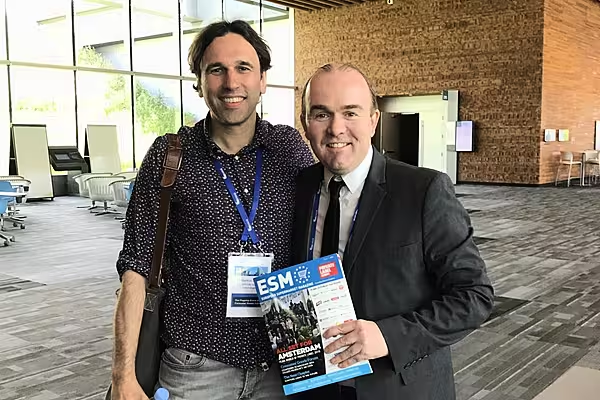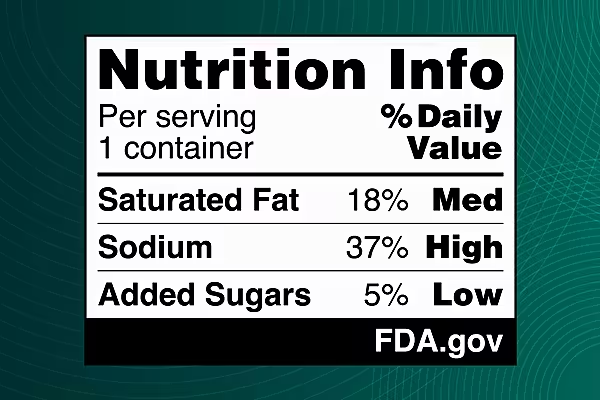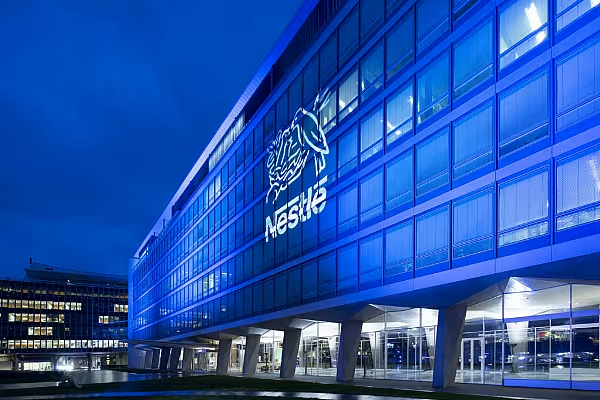A lack of easy-to-understand information about the ingredient composition of everyday food products is hampering the retailer-shopper relationship, according to SpoonGuru, a technology startup that is seeking to provide product clarity to shoppers, particularly those with a particular allergy or on a diet regime.
Founded in 2015, SpoonGuru combines AI and machine learning with nutritional expertise to determine a product’s suitability for a particular shopper, analysing the composition of a retailer's product portfolio and presenting the information in a simple to use format.
With close to two thirds (64%) of the world’s population now actively excluding foodstuffs from their diet, coupled with a growing demand for more personalised experiences for shoppers, SpoonGuru, which says that it is on a mission to ‘transform food discovery’, can be a valuable tool in a retailer’s arsenal.
Tesco, Albert Heijn, Walmart’s Jet.com and Australia’s Woolworths are among the retailers already signed up to use its technology, while a well known retail leader, former Asda CEO Andy Clarke, recently joined the firm as chairman.
At the recent Consumer Goods Forum Global Summit in Vancouver, ESM editor Stephen Wynne-Jones caught up with SpoonGuru chief executive Markus Stripf.
ESM: Before you founded SpoonGuru, you were involved in the music industry. How did that change come about?
Yes, I worked for a record label for 13 years, during a period of significant change – the digital ‘brave new world’. I loved the music industry.
But I became aware of this issue through personal circumstances, because of a number of allergies my wife has. I saw her in the supermarket trying to work out how to make sense of all the information that is printed on packaging. It was just crazy – in this day and age, you can’t tell if a product contains certain ingredients or not.
That’s when I got together with two friends – Tim Allen and Simon O’Regan – and we co-founded SpoonGuru. To us, it was a simple question, how on earth do you solve this? Our initial assumption was we could just go to the supermarkets, get all of their data, put it all in a big database, build a nice little app and help people to search for the items they wanted.
That was the premise, anyway. But when we went to Tesco, they told us, ‘Great idea, but don’t expect to get the data from us, because we don’t have clean data ourselves’.
ESM: This is something that retailers had tried in the past, but the inability to procure accurate data in a simple, easy to use format, was a massive hurdle.
A lot of the data is incomplete and also it doesn’t give you the full picture. A particular product might be gluten-free, but is it also nut-free, or kosher?
As a shopper, I just want to be able to give you my requirements, whatever they are, and get the retailer to show me what they’ve got. No supermarket has solved that problem, because the raw data doesn’t exist to do a proper analysis.
ESM: How did you get around that?
Machine learning and AI has now matured to the extent that even a start-up can develop highly scalable technological solutions to make sense of enormous array of unstructured data. We crunch more than 14 billion data points in the database to make sense of all of this information.
In other words, we bring in everything – all the nutritional values, all the ingredients, information about the production facility. On top of that, we have a team of nutritionists and dieticians that work with our data scientists to make sense of it all. The beauty of machine learning is the more data you throw at it, the smarter it gets. We have developed our models for four years now, and it’s by far the most accurate data processing engine within the industry.
We can also say with confidence that we provide 100% accuracy guarantees to our clients. When it comes to nutrition and allergies, you can’t just get it right ‘some of the time’. You need to have 100% confidence in that it is actually is honest and accurate. You get it wrong once, and somebody could end up in an ambulance, or worse.
ESM: I can see how it can be applied to online retail, but could it also work in the in-store environment?
Absolutely. A shopper could use an app to scan a product, and determine that it isn’t suitable for them, but find our that there’s another product in aisle 11 that is perfect.
Another use is what we describe as a ‘colleague app’, where you can ask the staff a question, such as "where is the gluten-free pesto", and they can look it up accurately and give you an exact location. That ensures they can give accurate information, every time, without the need for additional training. Because again, if they get it wrong once, one time...
The technology has a lot of opportunities outside of retail as well; restaurants, tourism, there are also fitness integration opportunities with Fitbit. There’s so much you can do with this.
ESM: The product offering within a store is constantly changing, with new product introductions coming on stream, and certain products being out of stock. How can you keep ahead of that?
We process data for all of our partners, including Tesco, on a daily basis. They send us the entire product catalogue every night, and we run it through our algorithms and send it back to them. It’s not just a case of ‘here’s our data set’, and off you go.
We’ve also develop new diet strategies with our partners as well. We’re getting much more into the health space, because people are looking to embrace a gut-health diet or lean-eating diet and we’re helping to define those and incorporate them into a retailer’s catalogue.
ESM: Ultimately, it comes down to making life easier for the customer?
Absolutely. That’s the future. Make the shopping experience easy, take the friction out, and make it personal. I’ve been a vegan for 20 years, and still hasn’t clicked with my supermarket of choice – every Christmas, they promote products that I can’t eat. It’s a waste of marketing, and it’s annoying.
Elon Musk has talked about putting a man on Mars within our lifetime, and yet you can’t find gluten-free sausages when you visit the supermarket. It’s ridiculous. But there is a solution.
More information about SpoonGuru can be found at www.spoon.guru.
© 2019 European Supermarket Magazine – your source for the latest retail news. Article by Stephen Wynne-Jones. Click subscribe to sign up to ESM: European Supermarket Magazine.














